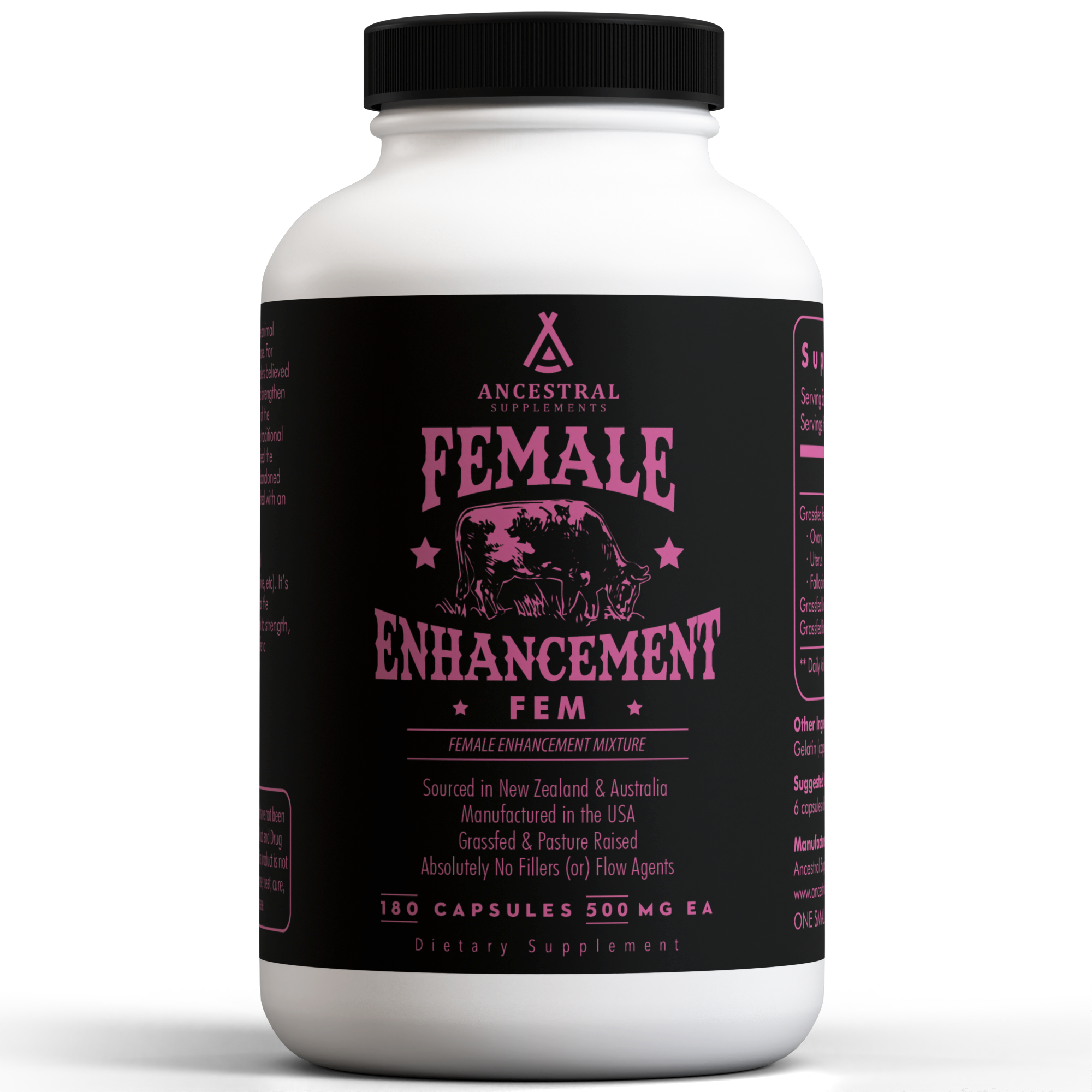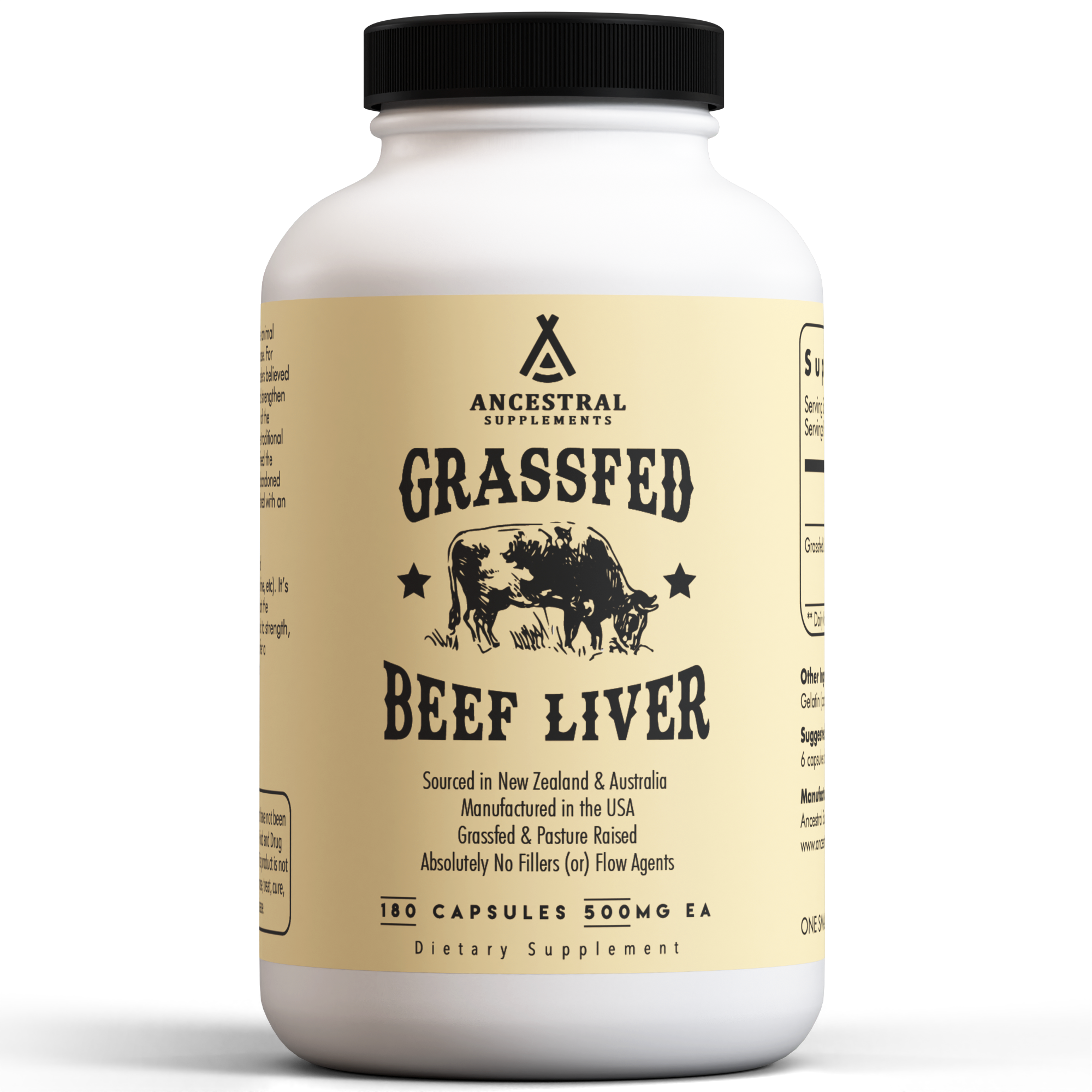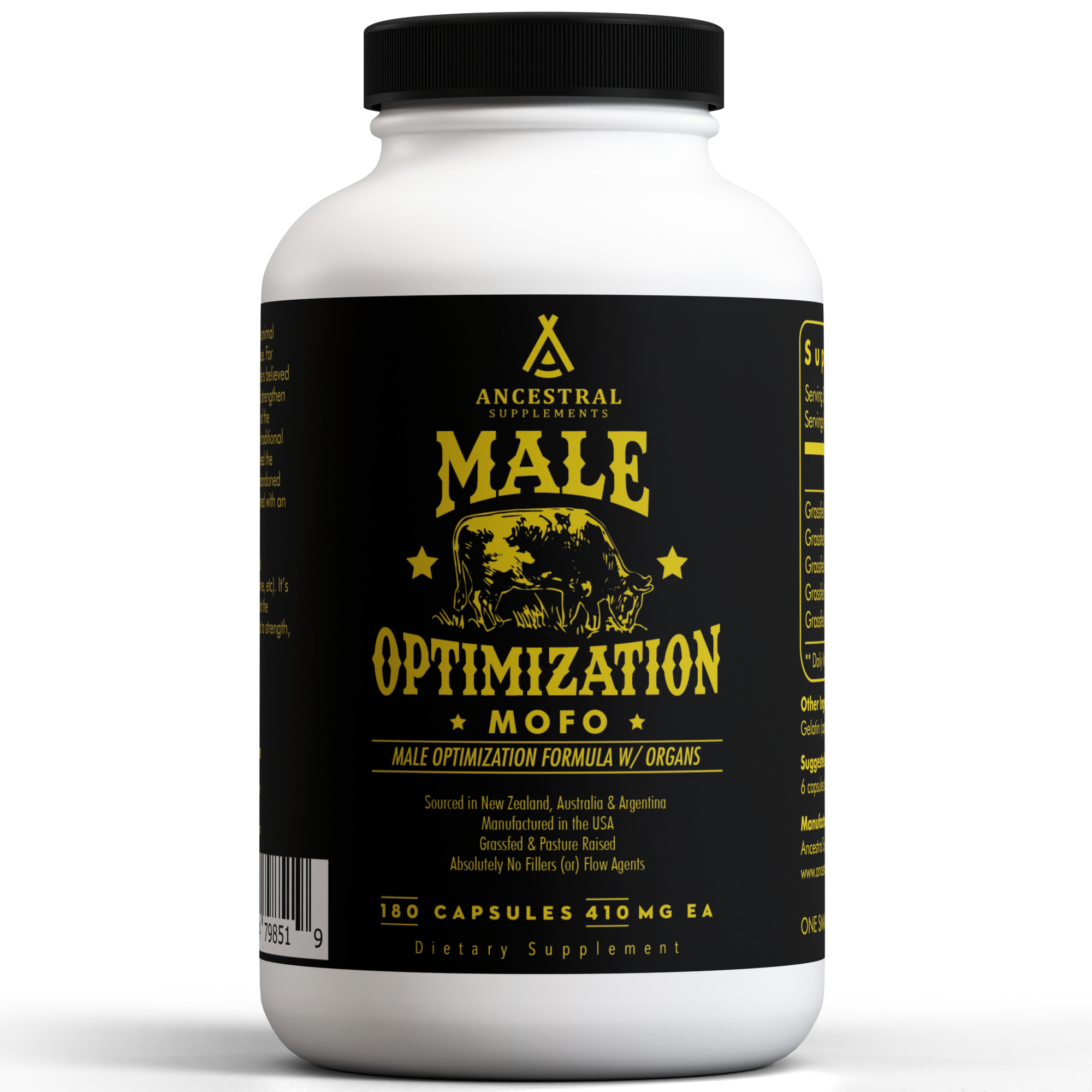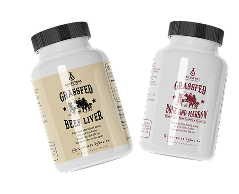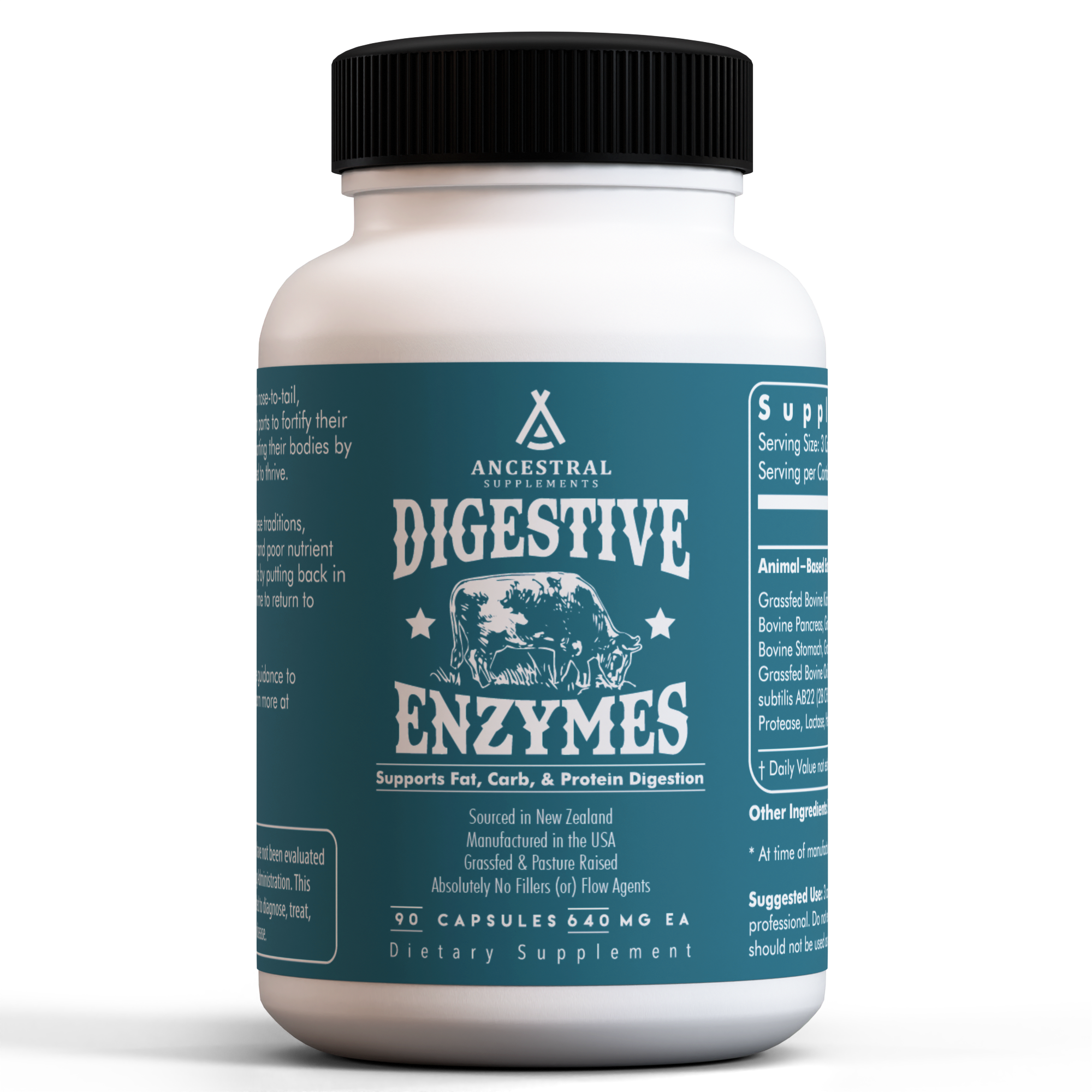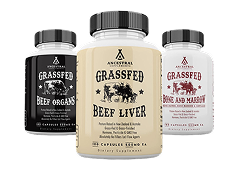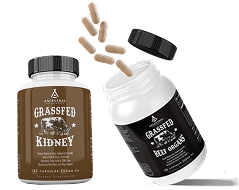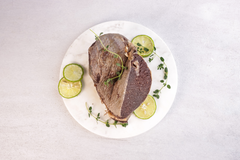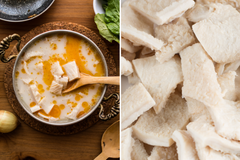Everything You Need To Know About Beef Heart Nutrition

Today, let's talk about an underrated delicacy: beef heart.
It might not be the first thing you think of when prepping meals, but it’s almost like a steak with tons of extra nutrients.
So, if you continually seek to enhance heart health, build muscle, sustain energy levels, or even maintain a positive mood, this post is for you.
We're about to explore how beef heart can make you healthier. Let’s dive in.
Beef Heart Nutrition: The Breakdown
Beef heart is loaded with essential vitamins, minerals, and macronutrients.
Let's break it down:
Vitamins
Beef heart is a rich source of various vitamins, including A, B12, and folate. These play a crucial role in supporting immune function and maintaining energy levels.
Minerals
Beef heart brings vital minerals to the table. Iron, zinc, and phosphorus are among the key players, contributing to overall well-being.
Macronutrients
When it comes to protein, beef heart stands tall. Protein is essential for muscle repair, growth, and maintaining a healthy metabolism.
Comparison With Other Meats
Now, let's put beef heart nutrition head-to-head with some common meats:
Chicken Breast
While chicken breast is a go-to for many, beef heart nutrition surpasses it in terms of iron content. Iron is crucial for carrying oxygen through the body to support energy levels.
Beef Steak
Beef heart and beef steak are similar when it comes to protein; however, the heart is richer in certain vitamins, like B vitamins (B12, B6, riboflavin, and niacin), Coenzyme Q10, iron, zinc, selenium, and phosphorus, making it a standout choice for overall nutrition.
Salmon
Salmon is known for its omega-3 fatty acids, but beef heart takes the lead in iron content. Iron helps with oxygen transport throughout the body, supporting sustained energy levels.
Turkey
Turkey is a reliable source of protein, but beef heart offers a diverse vitamin profile. With significant amounts of vitamin A, B12, and folate, beef heart contains more nutrients.
Pork Chops
Savor the protein richness of pork chops, but beef heart stands out for those focused on muscle repair and growth. Boasting high-quality protein, it emerges as a preferred choice for people wanting to enhance their physical well-being.
Lamb
The distinctive taste of lamb is delicious, but again, beef heart is the winner when comparing essential minerals. Filled with iron, zinc, and phosphorus, beef heart contributes substantially to overall health.
Chicken Thighs
While chicken thighs offer a succulent taste and texture, beef heart remains a viable option for those seeking a holistic approach to well-being. Its nutrient combination promotes vitality throughout the day.
8 Powerful Beef Heart Health Benefits
Now that you know the nutrition facts, let's explore the tangible health benefits that come with incorporating beef heart into your diet.
Here are eight beef heart benefits for your health:
1. Heart Health
Our ancestors went by a simple rule: Like supports like.
Meaning, if you eat beef heart, it’s thought to strengthen your own heart.
From a nutritional perspective, beef heart is rich in B vitamins, particularly B12 and folate.
These vitamins support the production of red blood cells, helping prevent anemia and promote efficient oxygen delivery.
Iron, also abundant in beef heart, contributes to the formation of hemoglobin, promoting a healthy circulatory system.
2. Muscle and Endurance
Beef heart supports building muscle and enhancing endurance at the same time.
Its high-quality protein is essential for muscle repair and growth. Additionally, coenzyme Q10, a potent antioxidant found in beef heart, supports cellular energy production, providing a natural boost to endurance during physical activities.
3. Weight Management and Diet Integration
For those managing their weight, beef heart is a great addition.
With its low fat content and high-quality protein, it’s a lean and satiating option, aiding in weight loss by promoting a sense of fullness and preserving lean muscle mass.
4. Better Energy
Beef heart's nutrient profile, including B vitamins, iron, and protein, collaborates to provide a sustained release of energy.
B vitamins, particularly B12 and folate, are great for energy metabolism. They assist in converting food into energy to ensure that your body efficiently utilizes the nutrients it receives.
Iron, another essential component in beef heart, optimizes the delivery of oxygen to cells, promoting cellular respiration and energy production.
Additionally, the high-quality protein in beef heart helps maintain stable blood sugar levels, preventing the energy crashes often associated with refined carbohydrates.
5. Positive Mood Support
Surprisingly, your meal can influence your mood.
Beef heart contains essential B vitamins that can help with your neurotransmitter synthesis and contribute to a more positive mood.
Neurotransmitter synthesis is like making messengers in our brains.
These messengers, called neurotransmitters, help our brain cells communicate. Our brain uses ingredients it gets from food, like amino acids and vitamins, to create these messengers.
Once made, these messengers travel between brain cells, helping them send messages to each other. This communication is vital for things like mood, memory, and overall brain function. When everything works well, we feel good, and our brain works smoothly.
If there's a hiccup in this process, it can affect how we feel and think.
Fortunately, the amino acids present in beef heart further support serotonin production and help with neurotransmitter synthesis, promoting a positive mood.
6. Healthy Immune Support
Your immune system is your body's defense, and beef heart helps support it.
The combination of vitamins A, B12, and zinc in beef heart supports the production and function of immune cells to ensure your body is ready to fight illnesses.
- Vitamin A: Crucial for maintaining the strength of your skin and mucous membranes, vitamin A acts as a protective barrier against potential threats.
- Vitamin B12: A key player in immune function, B12 is vital in the production of white blood cells. These cells are the defenders of your body, actively seeking and neutralizing potential threats. The B12 from beef heart helps make this cellular defense force well-prepared and responsive.
- Zinc: Zinc in beef heart contributes to the development of effective immune responses, helping enable your body to recognize and combat potential threats with precision.
7. Enhanced Digestive Health
Beyond the heart, beef heart has benefits for your digestive system.
The gelatin it contains has soothing properties that can potentially ease stomach discomfort and promote digestive health.
It also helps in maintaining the integrity of your gut lining, which is essential for effective nutrient absorption and preventing the entry of unwanted substances into the bloodstream.
Eating beef heart is a simple yet effective way to support your gut health.
8. Optimal Skin Health
Forget expensive creams; beef heart brings plenty of collagen to the table.
Collagen is crucial for maintaining skin elasticity and hydration, contributing to a radiant complexion. Including beef heart in your diet is a natural approach to supporting your skin health.
Incorporating beef heart into your meals goes beyond taste; it's a holistic approach to well-being.
From heart health to positive moods, beef heart brings a range of benefits that make it a standout choice for the health-conscious.
Beef Heart Recipes: How to Add It to Your Diet
Now that we've uncovered beef heart nutrition and its benefits, let's get practical.
How do you actually incorporate this into your meals?
If you’re curious about incorporating beef heart into your diet, read on.
Start Small
If you’re new to beef heart or organ meats in general, it is better to start small and slowly incorporate them into your meal plans to allow your body to adjust to the dense nutrition. For example, you can try mixing some beef heart with ground beef.
Where to Find Quality Beef Heart
When sourcing quality beef heart, your local butcher or a trusted meat supplier is your best bet.
Choose grass-fed and organic options if available. If you're feeling adventurous, consider connecting with local farmers or specialty markets.
Quality matters, so choose wisely.
Preparation Tips
Cooking beef heart might seem daunting, but with a few tips, you'll be a pro in no time. Here's how to ensure you get the most out of beef heart:
- Trimming: Before cooking, trim excess fat and connective tissues. This ensures a cleaner flavor and a more tender texture.
- Marination: Marinate the beef heart to enhance its flavor. Simple combinations like olive oil, garlic, and herbs work wonders.
- Slicing: For the best results, slice beef heart thinly against the grain. This helps in breaking down the muscle fibers, resulting in a more tender bite.
6 Beef Heart Recipes
After the preparation, you’ve got to try these easy beef heart recipes. These recipes cater to various tastes and dietary preferences.
Here are six beef heart recipes for you to enjoy:
1. Beef Heart Stir-Fry
Ingredients:
- 1 lb beef heart, thinly sliced
- Assorted vegetables (bell peppers, broccoli, carrots)
- 2 cloves garlic, minced
- 2 tbsp soy sauce
- 1 tbsp sesame oil
Instructions:
- Marinate beef heart slices in soy sauce for 30 minutes.
- Stir-fry garlic in sesame oil, add beef heart and vegetables.
- Cook until beef is browned and veggies are tender. Serve over rice.
2. Grilled Beef Heart Skewers
Ingredients:
- 1 lb beef heart, cut into chunks
- Marinade (olive oil, garlic, thyme)
- Skewers
Instructions:
- Combine beef heart chunks with the marinade and refrigerate for at least an hour.
- Thread marinated beef heart onto skewers.
- Grill until cooked to your liking. Serve with a side of roasted vegetables.
3. Beef Heart Tacos
Ingredients:
- 1 lb beef heart, sliced
- Taco seasoning
- Tortillas
- Toppings (salsa, lettuce, cheese)
Instructions:
- Season beef heart slices with taco seasoning.
- Cook until browned. Assemble tacos with your favorite toppings.
4. Beef Heart Curry
Ingredients:
- 1 lb beef heart, diced
- Curry paste
- Coconut milk
- Mixed vegetables
Instructions:
- Cook beef heart in curry paste until browned.
- Add coconut milk and vegetables.
- Simmer until meat is tender. Serve over rice.
5. Beef Heart Salad
Ingredients:
- 1 lb beef heart, thinly sliced
- Mixed greens
- Cherry tomatoes
- Balsamic vinaigrette
Instructions:
- Sear beef heart slices until cooked to your liking.
- Toss with mixed greens, cherry tomatoes, and drizzle with balsamic vinaigrette.
6. Beef Heart Broth
Ingredients:
- 1 lb beef heart
- Beef bones
- Assorted vegetables
- Water
Instructions:
- Simmer beef heart and bones with vegetables in water for several hours.
- Strain and use the broth as a base for soups or enjoy it on its own.
Pairings with Beef Heart
Enhance the flavor and nutritional value of your beef heart dishes by pairing them with complementary foods:
- Leafy Greens: Serve beef heart with a side of sautéed spinach or kale for an extra dose of vitamins and minerals.
- Quinoa: A perfect companion to beef heart, quinoa adds a nutritious and satisfying element to your meal.
- Roasted Vegetables: Pairing beef heart with roasted veggies like carrots, bell peppers, and sweet potatoes enhances both taste and texture.
- Avocado: Creamy avocado complements the flavor and adds healthy fats to your beef heart dishes.
- Herbs and Spices: Experiment with herbs and spices like rosemary, thyme, and cumin to elevate the overall taste profile.
Incorporating beef heart into your diet doesn't mean sacrificing flavor. With these sourcing tips, preparation tricks, recipes, and pairings, you can enjoy the nutritional benefits of beef heart deliciously and satisfyingly!
Debunking Myths About Eating Beef Heart
Myth 1: Beef Heart Tastes Strange
Contrary to popular belief, beef heart doesn't have an unusual or overpowering taste compared to other organ meats.
It still has a little bit of a distinct taste, but when properly prepared, it can be as delicious as any other cut of meat. It’s rich and pairs well with various seasonings.
Myth 2: Eating Beef Heart Is Unsafe
Beef heart is considered safe to eat when sourced from reputable suppliers.
In fact, it undergoes the same rigorous safety standards as other meat cuts. As with any food, proper cooking and hygiene practices help ensure a safe and enjoyable meal.
Myth 3: Beef Heart Is Unhealthy
On the contrary, beef heart is very nutritious.
As we talked about earlier, it’s packed with essential nutrients like B vitamins, iron, and protein. When consumed as part of a balanced diet, it can contribute positively to overall well-being.
Cultural Perspectives
Different cultures around the world have been cooking beef hearts for a long time. Understanding these cultural perspectives contributes to a more global understanding.
Latin American Cuisine
In Latin American countries, beef heart is a staple in dishes like anticuchos, skewers marinated and grilled to perfection. It's celebrated for its flavor and cultural significance.
European Culinary Traditions
European cuisines, particularly in France and Italy, showcase beef heart in hearty stews and casseroles. It's valued for its contribution to robust and savory flavors.
Sustainable and Ethical Considerations
Nose-to-Tail Eating
Incorporating beef heart aligns with the nose-to-tail eating philosophy, which promotes sustainability by utilizing the entire animal. This approach reduces waste and honors the animal's life by using all its parts.
Ethical Sourcing
When choosing beef heart, look for ethical sourcing practices.
Consider the following:
- Grass-Fed and Organic Options: Choose beef heart from animals raised in ethical conditions, preferably grass-fed and organic. This ensures a higher quality of meat and supports environmentally friendly farming practices.
- Environmental Impact: Including organ meats like beef heart in your diet can have positive environmental implications. By consuming the whole animal, we contribute to a more sustainable and eco-friendly food system. It's a small step that collectively makes a significant impact on our planet.
Try Our Grass Fed Beef Heart Supplement
Beef heart is very nutritious but often goes unnoticed.
Rich in high-quality protein, essential vitamins like B and D, and minerals such as iron, it emerges as a great food for supporting overall health.
The balance of low fat and high protein makes beef heart a versatile and nutritious choice for those seeking a well-rounded diet.
The culinary possibilities with beef hearts are huge. Whether you stir-fry, grill to perfection, or simmer in a comforting curry, beef heart's unique flavor and tender texture offer a unique touch to various dishes.
But if you don’t want all that fuss and just want the beef heart nutrition, we have a convenient option.
Explore Ancestral’s Grass Fed Beef Heart Supplement — a straightforward way to enjoy the benefits of beef heart without complexity.
Click here to try Ancestral's Grass Fed Beef Heart Supplement today!

